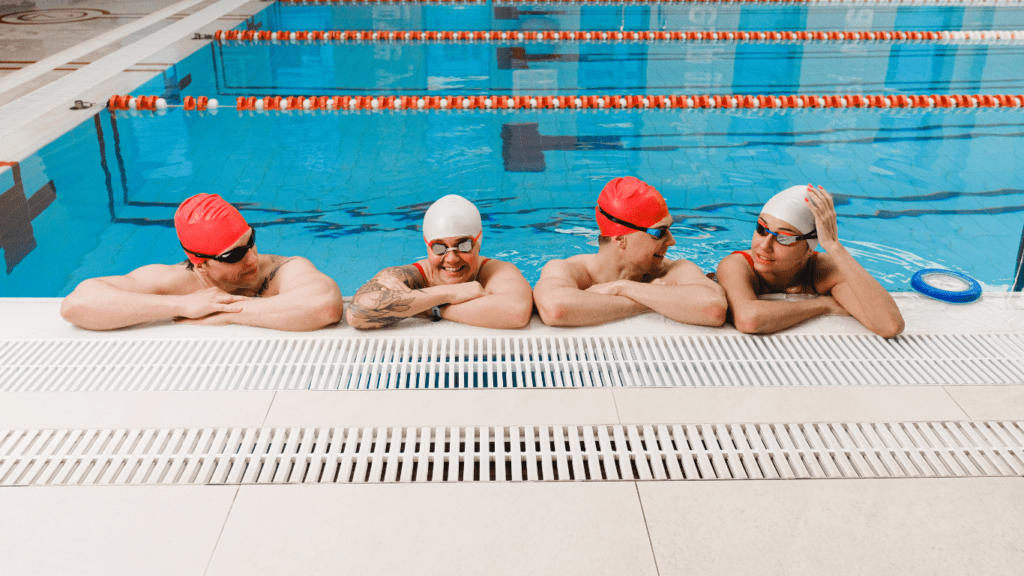Benefits of Starting a New Sport
Starting a new sport brings several advantages. Engaging in physical activity helps improve overall fitness. Regular participation enhances cardiovascular health, strength, and flexibility. For example, running can boost endurance, while yoga increases flexibility.
Mental health benefits significantly from sports. Physical activity releases endorphins, reducing stress and anxiety. Participating in team sports fosters a sense of community, decreasing feelings of isolation. For instance, joining a soccer team can provide a support network.
Sports often introduce new social opportunities. Meeting people with similar interests helps expand social circles. Interacting with teammates or fellow enthusiasts creates bonds and friendships. Events or tournaments also offer occasions to connect with a broader community.
Learning new skills forms another benefit. Sports require the development of techniques and strategies, which enhance cognitive abilities. For example, mastering tennis demands hand-eye coordination and strategic thinking.
Regular participation in sports promotes discipline and goal-setting. Setting and achieving personal goals, like improving a personal best, teaches perseverance. This quality often translates to other areas, such as academics or professional life.
Finally, engaging in a new sport can bring a sense of accomplishment. Overcoming initial challenges and seeing progress boosts self-confidence. Achieving milestones, whether small or significant, reinforces a sense of achievement.
Choosing the Right Sport
Starting a new sport can be thrilling. Picking the right one involves evaluating several key factors.
Assessing Your Interests
Focus on what excites you. Think about activities you enjoy or have enjoyed. If you love running, consider track or soccer. If team dynamics appeal to you, look into basketball or volleyball. Interests make commitment easier.
Considering Physical Requirements
Different sports demand different physical capabilities. Tennis requires agility and endurance. Weightlifting needs strength and stability. Assessing your physical attributes, such as speed, strength, and stamina, helps you match them with the sport’s demands. A mismatch can lead to frustration or injury.
Evaluating Time Commitment
Time is a crucial factor. Some sports, like golf, need several hours per session. Others, like swimming, can be done in less time but may require frequent practice. Look at your schedule and see what fits. Balance between sports and other responsibilities ensures sustainability.
By evaluating these aspects, choosing a suitable sport becomes manageable.
Getting the Right Gear
Proper gear significantly influences your experience when starting a new sport. Carefully choosing the right equipment ensures safety and enhances performance.
Essential Equipment
Every sport requires specific gear. For instance, running demands a quality pair of running shoes to prevent injury and improve efficiency. If you’re starting tennis, invest in a good racket and comfortable tennis shoes supporting lateral movement. For team sports like soccer, cleats and shin guards are essential. Always check sport-specific guidelines to identify necessary items.
Recommended Brands
- Certain brands are known for high-quality sports gear.
- For running shoes, try Nike or Asics for their durability and support.
- Wilson and Babolat offer excellent tennis rackets.
- Adidas provides reliable soccer cleats known for comfort and performance.
- Do some research to confirm that the brands align with your specific needs and budget.
By focusing on the correct gear and trusted brands, you can enjoy your new sport safely and effectively.
Finding Training Resources
Locating the right training resources is essential for skill improvement in any sport. Having access to both local and online options can offer flexibility and comprehensive learning.
Local Clubs and Classes

Join local clubs or enroll in classes to gain structured training and community support. Many community centers, gyms, and recreational facilities offer sports classes tailored to beginners.
These classes ensure a consistent schedule and hands-on coaching which can be crucial for learning techniques correctly. For instance, joining a local soccer club can provide access to regular practices and leagues, helping you build skills and stay motivated. Investigate options in your area and attend a trial session to determine if the coaching style suits you.
Online Tutorials and Courses
Explore online tutorials and courses for flexible and extensive training material. Platforms like:
- YouTube
- Coursera
- Udemy
offer numerous tutorials spanning various sports. For example, YouTube hosts countless how-to videos on swimming techniques, while Coursera provides in-depth courses on basketball strategies. Online resources often feature detailed explanations and multiple angles, making it easier to understand complex skills.
Digital content allows for learning at your own pace, with the convenience of revisiting lessons as needed. Look for endorsed courses or tutorials by certified professionals to ensure quality instruction.
Building a Routine
Creating a consistent routine is essential for making progress in any new sport. It fosters discipline and ensures steady improvement over time.
Setting Goals
Setting clear, achievable goals is the first step toward building a routine. I identify specific objectives, like increasing my running distance by a mile each week, to give structure to my practice sessions. It’s important to break down larger goals into manageable tasks. For instance, if my aim is to finish a marathon, I start by setting short-term goals like running a 5K, then a 10K, before tackling longer distances. These milestones keep me motivated and focused.
Tracking Progress
Tracking progress helps in staying on course and making adjustments as needed. I use a journal or an app to log my activities, noting the duration and intensity of each session.
This data provides insights into my progress and highlights areas that need improvement. For example, I might notice that my stamina has increased because I ran longer without feeling fatigued. Periodically reviewing this information allows me to celebrate achievements and refine my goals.
Staying Motivated
Maintaining enthusiasm is crucial when starting a new sport. Staying engaged helps ensure long-term success and continued enjoyment.
Finding a Community
Connecting with like-minded individuals can significantly boost motivation. Joining local clubs or online groups offers support and shared experiences. For example, community sports leagues often provide a sense of camaraderie and accountability. Likewise, platforms like Meetup or Facebook Groups are excellent for discovering local teams or casual meet-ups. Engaging with others who share your interest helps keep enthusiasm high, especially when encountering challenges or plateaus.
Rewarding Yourself
Celebrating milestones, no matter how minor, fosters motivation. For instance, treating yourself to new gear upon reaching a certain goal or enjoying a rest day after consistent effort can serve as powerful incentives. Rewards can be varied, from a favorite meal to a relaxation day. Establishing a reward system linked to achieving specific targets makes the journey more enjoyable and reinforces positive behavior.


 Amelie Glover played a pivotal role in shaping the success of News Flip Network through her expertise and dedication. With a keen eye for detail, she focused on ensuring the platform’s content flows smoothly, making it both engaging and informative. Glover’s efforts in organizing the site’s structure and managing editorial tasks helped create a seamless user experience, enhancing the accessibility of news for readers around the world.
Amelie Glover played a pivotal role in shaping the success of News Flip Network through her expertise and dedication. With a keen eye for detail, she focused on ensuring the platform’s content flows smoothly, making it both engaging and informative. Glover’s efforts in organizing the site’s structure and managing editorial tasks helped create a seamless user experience, enhancing the accessibility of news for readers around the world.